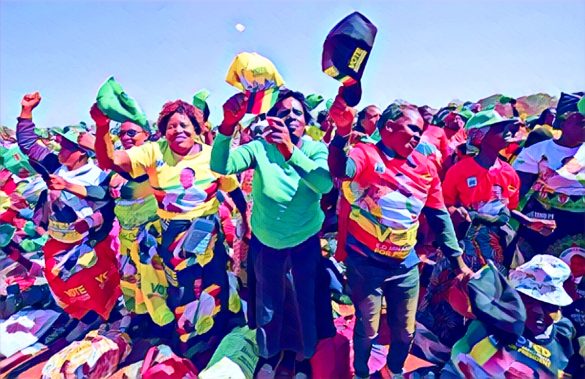KEY POINTS
- Zimbabwean women push for political roles despite cultural limitations.
- Affirmative action raises women’s representation but challenges persist.
- Progress for women in Zimbabwe’s politics requires institutional reform.
In Zimbabwe, women’s position in politics has undergone significant changes, influenced by historical legacies, cultural norms, and systemic constraints.
Since the nation’s independence war, Zimbabwean women have championed enhanced representation, yet encounter obstacles in a mostly male political landscape.
Historical and institutional frameworks for Women’s political engagement
Women’s political engagement in Zimbabwe commenced during the liberation struggle, with notable leaders such as Joice Mujuru emerging. Following independence in 1980, the Zimbabwean Constitution instituted measures for gender equality.
According to African studies in the academy, significant female participation was constrained until the affirmative action provision of the 2013 Constitution, which required reserved seats for women to enhance representation but failed to eliminate underlying structural obstacles.
Zimbabwe’s adherence to international gender equality frameworks, including the Convention on the Elimination of All Forms of Discrimination Against Women (CEDAW), has influenced its policy.
Obstacles to Women’s political representation
Notwithstanding legislative safeguards, Zimbabwean women face cultural, economic, and institutional barriers in the political arena. A patriarchal society upholds conventional perspectives, wherein politics is frequently regarded as a masculine sphere. These perspectives are bolstered by familial and communal roles, causing numerous women to hesitate in seeking political jobs.
Moreover, economic limitations restrict women’s political participation, as they frequently lack the financial means essential for campaigning and networking, which are vital in Zimbabwe’s competitive political sector.
Political violence serves as an additional deterrent. Female politicians, such as Thokozani Khupe, frequently experience harassment, intimidation, and violence as a result of their gender. A 2018 study conducted by the Research and Advocacy Unit (RAU) revealed that 60% of female candidates had encountered political violence, hence further deterring female involvement.
Advancements, possibilities, and future outlook
Notwithstanding these obstacles, advancement is in progress. Affirmative action policies have enhanced representation, and younger women are progressively utilizing internet channels to elevate their views. Grassroots organizations such as the Women in Politics Support Unit offer training and resources to assist women in surmounting institutional and societal obstacles. Global initiatives such as #SheVotes and #ElectHer motivate young Zimbabwean women to perceive politics as attainable, hence contesting conventional constraints.
Future endeavours should prioritize extensive changes in political parties, safeguards against violence, and economic empowerment projects that ensure equitable opportunities.
Attaining genuine gender parity in Zimbabwe’s political landscape necessitates confronting enduring cultural, economic, and institutional obstacles. While quotas and policies establish a framework, genuine transformation necessitates altering public perception, enhancing women’s access to resources, and fortifying safeguards against political violence.


